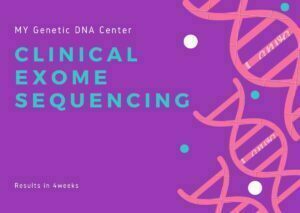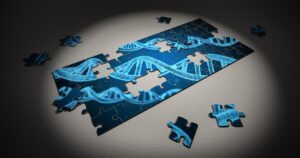Introduction on CAN ASSIST BREAST:
CAN ASSIST BREAST provides a comprehensive genetic and molecular analysis designed to help doctors assess an individual’s risk of developing breast cancer. The test examines specific genes and biomarkers that influence breast tissue behavior and susceptibility to cancer, allowing healthcare providers to identify patients with higher genetic risk. Patients who take this test receive detailed information that guides personalized preventive strategies, early screening plans, and treatment decisions.
Doctors often recommend it for individuals with a strong family history of breast cancer, early-onset cases in relatives, or other risk factors that suggest hereditary susceptibility. By combining advanced genetic analysis with each patient’s medical and family history, CAN ASSIST BREAST empowers doctors to detect potential risk early, implement preventive measures, and support patients in making informed decisions about their long-term health. The test also helps monitor response to preventive interventions and supports proactive strategies that reduce the likelihood of developing breast cancer.
What is CAN ASSIST BREAST?
CAN ASSIST BREAST is a specialized genetic and molecular testing panel that doctors use to evaluate a patient’s risk of developing breast cancer. The test examines specific genes, such as BRCA1 and BRCA2, along with other molecular markers that influence breast tissue behavior and cancer susceptibility. By analyzing these genetic and molecular factors, doctors gain a clear understanding of an individual’s predisposition to breast cancer, allowing them to create personalized preventive strategies and early screening plans.
Patients with a family history of breast cancer, early-onset cases in relatives, or other risk factors benefit most from this test, as it identifies potential hereditary risk. Doctors also use the results to guide lifestyle recommendations, monitoring schedules, and, if necessary, preventive treatments or interventions. CAN ASSIST BREAST empowers patients to take proactive steps to protect their health, supports informed decision-making, and enhances the ability of healthcare providers to implement strategies that reduce the likelihood and impact of breast cancer.
Who should take CAN ASSIST BREAST?
Doctors recommend CAN ASSIST BREAST for individuals who face a higher risk of developing breast cancer due to genetic or family factors. Patients with a strong family history of breast cancer, especially cases occurring at a young age, benefit from this test to identify potential inherited mutations. Individuals who already carry known genetic mutations or have relatives with high-risk genes also gain valuable insights from the test. Doctors may suggest it for patients who notice unusual breast changes or have other risk factors, such as exposure to environmental triggers or lifestyle patterns that increase susceptibility.
By taking this test, patients obtain detailed information about their personal risk profile, allowing doctors to design tailored screening schedules, preventive strategies, and early interventions. This approach helps patients take proactive steps to reduce their risk, monitor their breast health closely, and make informed decisions about long-term care and lifestyle adjustments.
How is the test performed?
Doctors perform CAN ASSIST BREAST by collecting a blood or saliva sample from the patient, which contains the DNA needed for genetic analysis. During the procedure, healthcare professionals draw blood from a vein, usually in the arm, or guide the patient to provide a saliva sample in a clean collection tube. Laboratory specialists then examine specific genes, such as BRCA1, BRCA2, and other breast cancer–related markers, along with molecular indicators that influence breast tissue behavior.
Doctors ensure the sample is accurately labeled and handled carefully to maintain integrity throughout the testing process. By analyzing these genetic and molecular factors, doctors gain a detailed understanding of the patient’s risk for breast cancer, which allows them to create personalized monitoring plans, preventive strategies, and early intervention measures tailored to the patient’s individual needs.
How long does it take to get results?
Can the test detect breast cancer early?
CAN ASSIST BREAST does not detect existing breast cancer, but it helps doctors identify individuals at higher risk by analyzing genetic mutations and molecular markers linked to cancer susceptibility. Patients who learn they carry high-risk genes can receive early and frequent screening, such as mammograms or MRI scans, which increases the likelihood of detecting cancer at an earlier, more treatable stage if it develops.
Doctors can also recommend preventive measures, including lifestyle modifications, medications, or, in some cases, prophylactic surgery, to reduce the risk of cancer onset. By providing a detailed assessment of genetic and molecular risk, the test empowers patients to take proactive steps to protect their health, while enabling doctors to implement targeted monitoring and intervention strategies for better long-term outcomes.
Is the test accurate?
CAN ASSIST BREAST delivers highly accurate results in identifying known genetic mutations and molecular markers associated with breast cancer risk. Doctors rely on the test to evaluate a patient’s predisposition to breast cancer, combining the findings with family history, lifestyle factors, and other clinical information to create a comprehensive risk profile. While the test cannot predict every possible mutation or guarantee cancer prevention, it provides precise information about well-studied high-risk genes like BRCA1 and BRCA2.
Patients benefit from this level of accuracy because it allows doctors to recommend personalized screening schedules, preventive strategies, and early intervention plans with confidence. By integrating genetic insights with clinical judgment, doctors enhance patient care and support informed decision-making regarding breast health.
Are there any risks involved?
Here are the risks involved with CAN ASSIST BREAST:
Minor discomfort during blood collection: Patients may feel a brief pinch or slight pain when the nurse draws blood.
Bruising or redness: Some patients may experience mild bruising or redness at the puncture site.
Emotional impact: Learning about high genetic risk may cause anxiety, stress, or worry about future health.
Privacy concerns: Patients should ensure that their genetic information remains confidential to prevent potential misuse by employers or insurers.
Need for counseling: Doctors often recommend genetic counseling to help patients understand the implications of their results, which may require time and adjustment.
No physical harm from the test itself: The procedure only requires a blood or saliva sample, so it does not involve invasive surgery or medications.
How do doctors use the results?
Doctors use the results of CAN ASSIST BREAST to create personalized care plans that address each patient’s unique risk for breast cancer. When the test identifies genetic mutations or molecular markers associated with higher susceptibility, doctors recommend tailored screening schedules, including more frequent mammograms or MRI scans, to monitor breast tissue closely. They also discuss preventive measures, such as lifestyle modifications, medications, or, in certain cases, prophylactic surgery, to reduce the likelihood of cancer development.
By combining the test results with family history, age, and other medical factors, doctors develop a comprehensive strategy that balances prevention, early detection, and patient preferences. This approach allows patients to take proactive steps, reduces uncertainty about genetic risk, and helps doctors provide precise, evidence-based guidance for long-term breast health management.
Do I need genetic counseling?
Can the results change over time?
Genetic results remain constant because DNA does not change. However, doctors may update risk assessments based on new research, changes in family history, or emerging medical evidence to provide ongoing guidance for prevention and monitoring.




